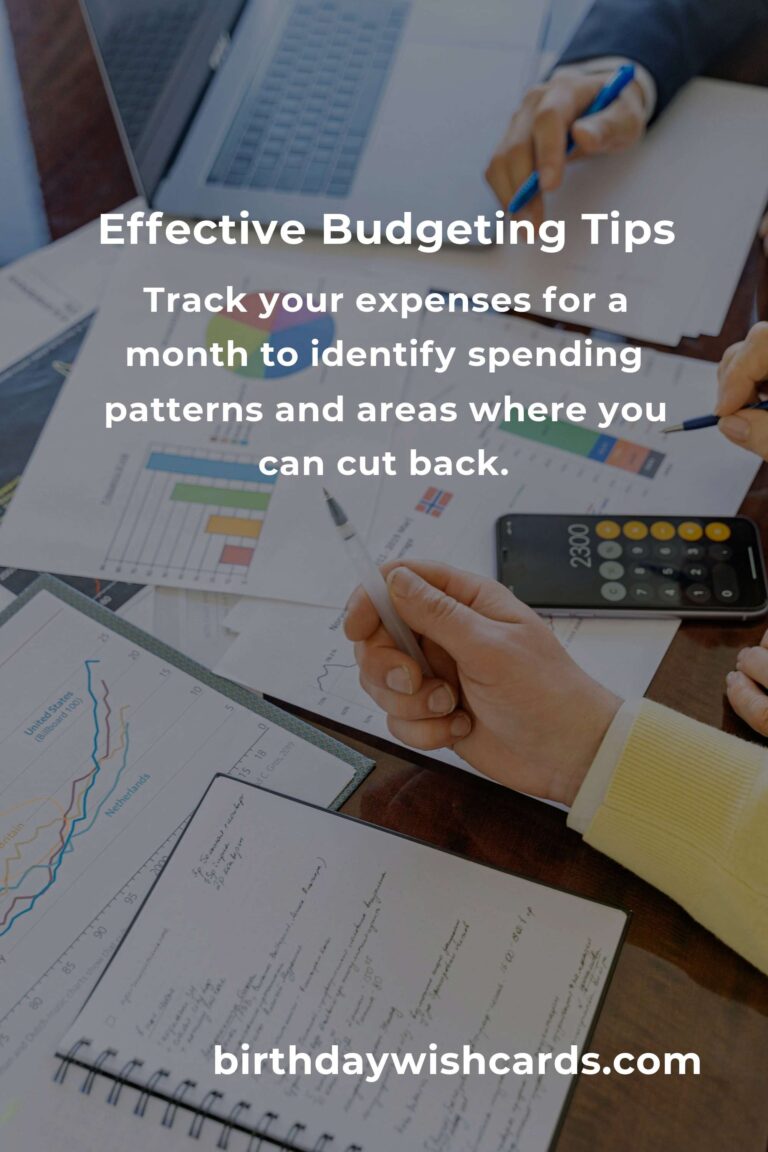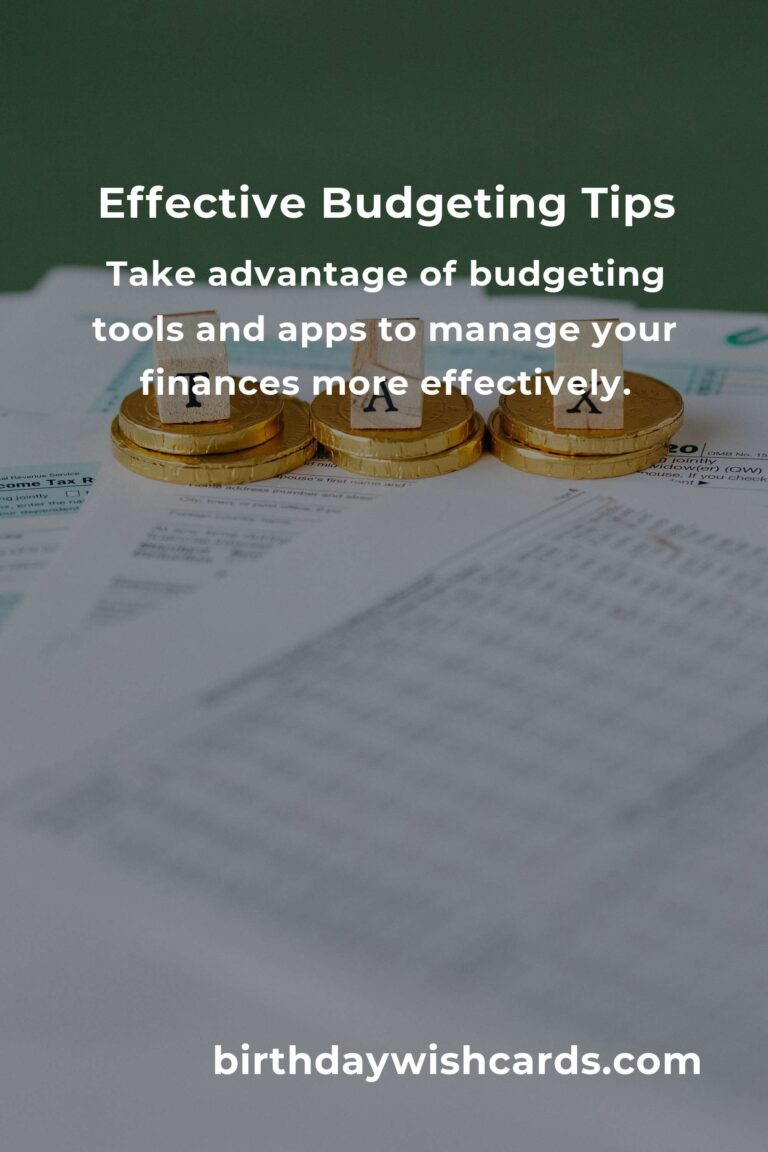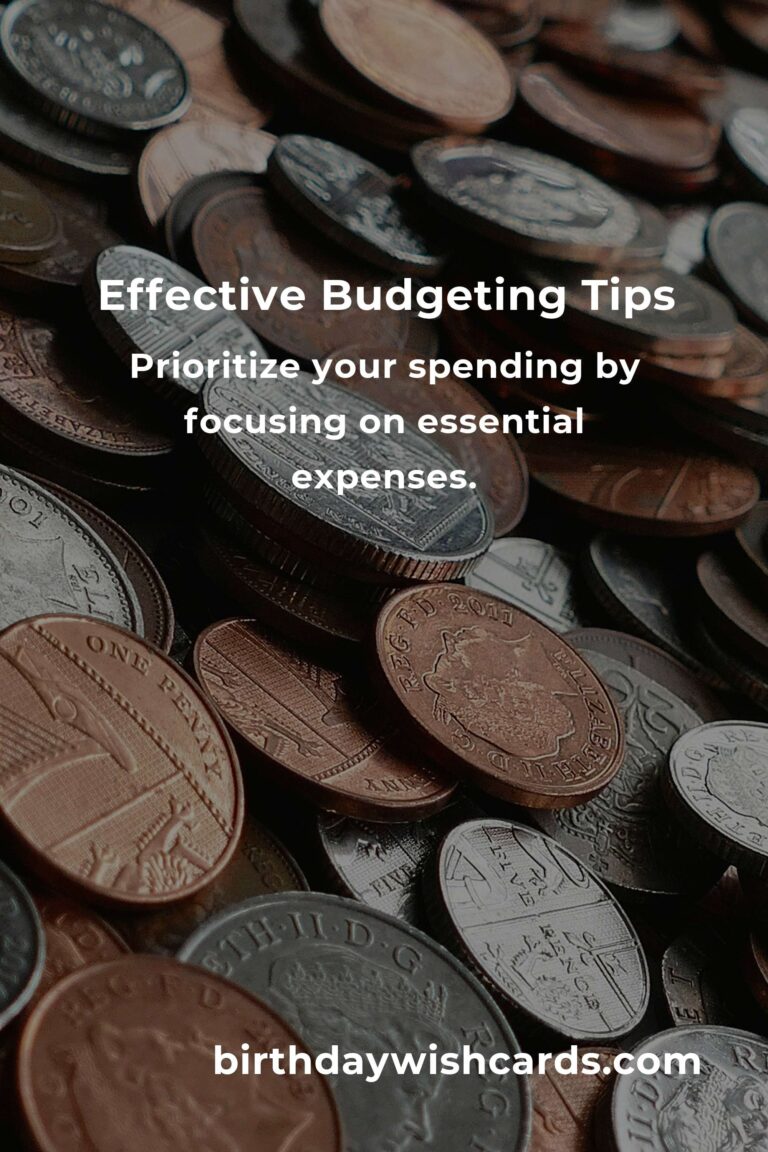
Creating and sticking to a budget can be a daunting task, especially if you are new to managing your finances. However, budgeting is crucial for achieving financial stability and freedom. By implementing a few simple strategies, you can master the art of budgeting and make your financial goals a reality.
1. Set Clear Financial Goals
Your budgeting journey should start with setting clear financial goals. Whether it’s saving for a vacation, buying a home, or retiring early, having clear goals will guide your budgeting process and keep you motivated.
2. Track Your Expenses
One of the most important steps in budgeting is knowing where your money is going. Start by tracking your expenses for a month to identify spending patterns and areas where you can cut back.
3. Create a Realistic Budget
Once you know your spending habits, create a budget that reflects your actual expenses. Be realistic about your needs and wants, and make sure your budget aligns with your financial goals.
4. Prioritize Essential Spending
Prioritize your spending by focusing on essential expenses such as housing, utilities, groceries, and transportation. Allocate funds for these necessities before spending on non-essential items.
5. Use Budgeting Tools
Take advantage of budgeting tools and apps that can help you manage your finances more effectively. These tools can automate tracking and provide valuable insights into your spending habits.
6. Plan for Irregular Expenses
Irregular expenses, such as car maintenance or medical bills, can throw off your budget. Plan for these expenses by setting aside a small amount each month in a separate savings account.
7. Build an Emergency Fund
An emergency fund is a crucial part of any budget. Aim to save at least three to six months’ worth of living expenses to protect yourself against unexpected financial setbacks.
8. Reduce Unnecessary Spending
Identify areas where you can cut back on unnecessary spending. This could include eating out less frequently, canceling unused subscriptions, or finding more affordable alternatives for certain products and services.
9. Review and Adjust Your Budget Regularly
Your financial situation and goals may change over time, so it’s essential to review and adjust your budget regularly. This ensures that your budget remains relevant and effective.
10. Automate Savings
Automating your savings can help you stick to your budget and reach your financial goals faster. Set up automatic transfers to your savings account each payday to ensure consistent saving.
11. Involve Your Family
If you have a family, involve them in the budgeting process. Discuss financial goals and challenges together to ensure everyone is on the same page and working towards the same objectives.
12. Set a Budget for Fun
Budgeting doesn’t mean you can’t have fun. Set aside a portion of your budget for entertainment and leisure activities to avoid feeling deprived and help you stick to your plan.
13. Celebrate Your Successes
Celebrate your budgeting successes, no matter how small. Achieving financial milestones can be motivating and encourage you to keep pushing towards your long-term goals.
By following these 13 tips, you can create an easy and effective budget that aligns with your financial goals. Remember, budgeting is a continuous process that requires regular adjustments and dedication. With the right mindset and tools, financial freedom is within your reach.
Creating and sticking to a budget is crucial for achieving financial stability and freedom. Start your budgeting journey by setting clear financial goals. Track your expenses for a month to identify spending patterns and areas where you can cut back. Prioritize your spending by focusing on essential expenses. Take advantage of budgeting tools and apps to manage your finances more effectively.
#Budgeting #FinancialFreedom #MoneyManagement #PersonalFinance













